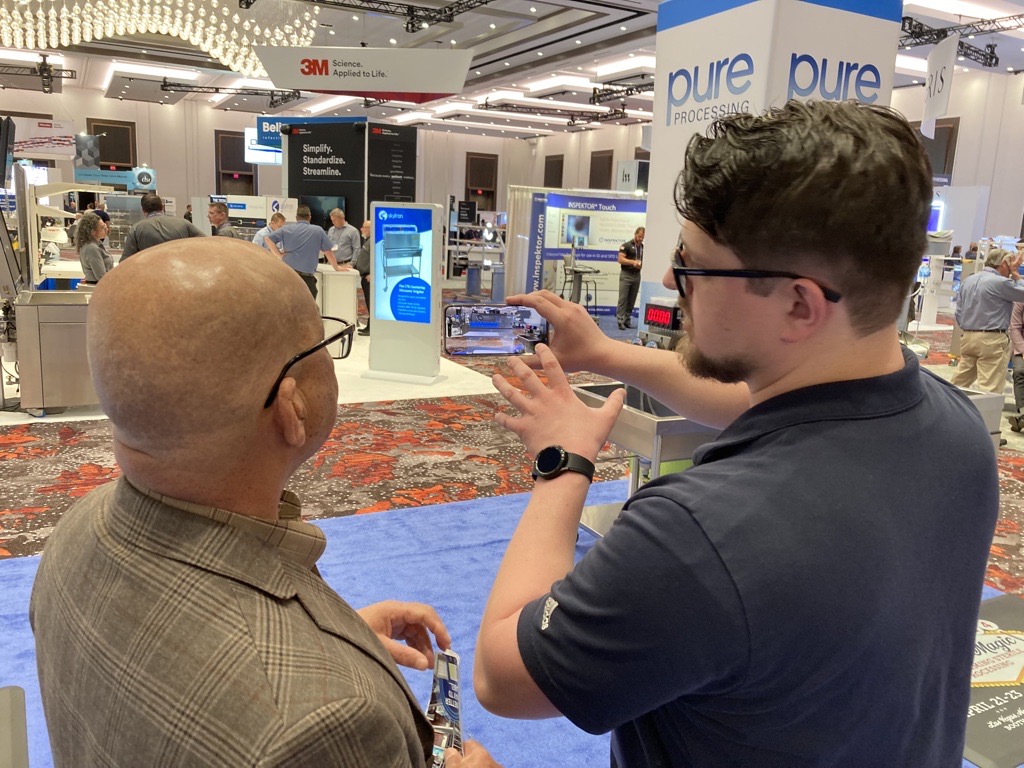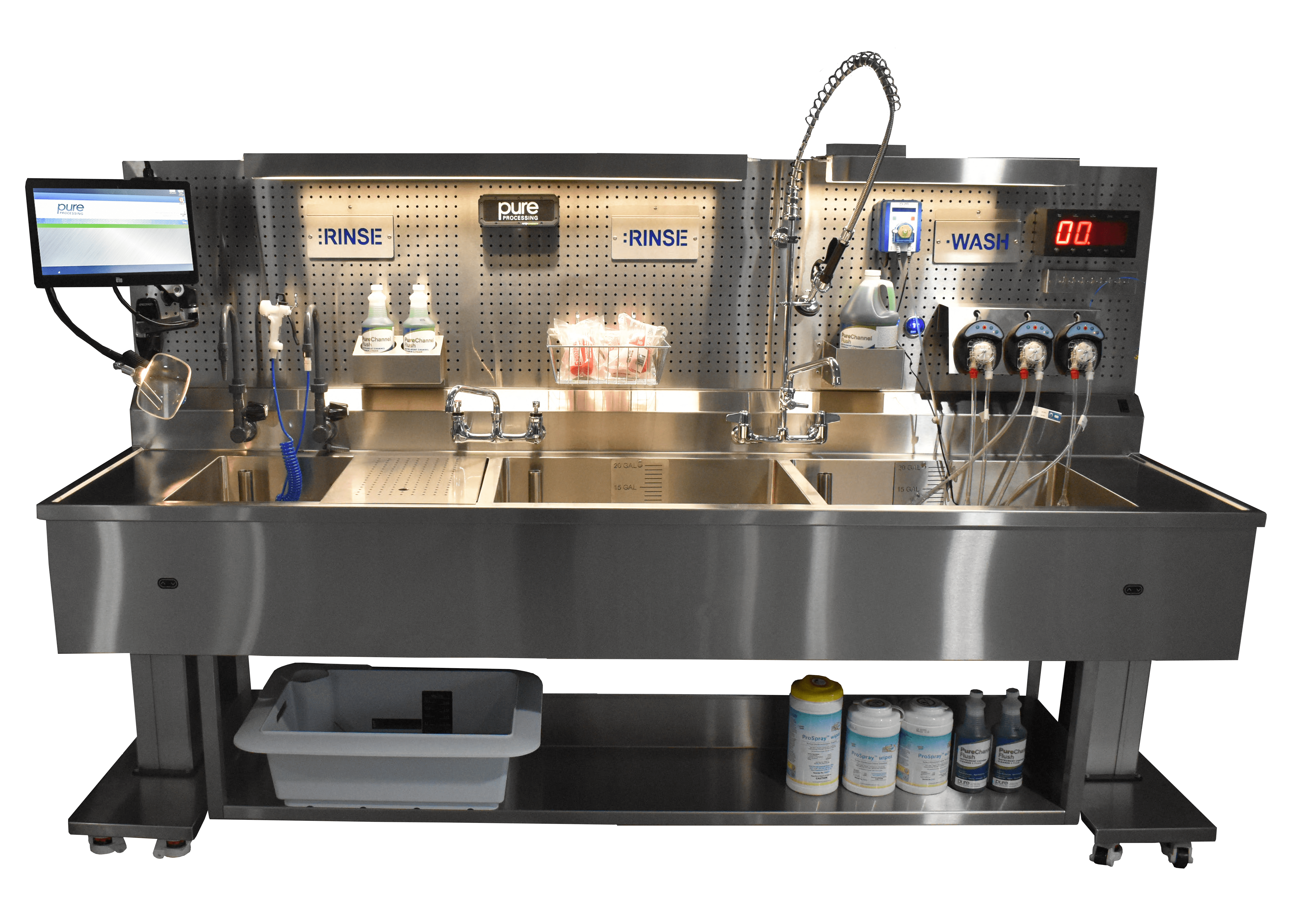
The Many Roles of Educators
In March 2024, Pure Processing’s Voice of the Customer (VOC) Committee met to discuss a topic on the minds of many in reprocessing departments: educators. Educators play many critical roles in reprocessing departments, some of which may go overlooked or underappreciated.
Gene Ricupito CRCST, CIS, CHL, CFER, PMP, Sr. Project Manager at UCSF Health, and longtime member of the VOC Committee, discussed the many roles educators play in sterile processing more in-depth following the March call.
“If you don’t have an educator, it’s what doesn’t happen that’s the biggest deal.”
– Gene Ricupito
Hiring and keeping great teams
Educators are in a unique position to not only help managers assess competencies but determine what a potential new hire will need in terms of training in the event they join the team, as well as how long that might take. “When you have an educator on the team, it makes a lot of sense to set up panel interviews and include them. This allows educators to weigh in on applicants and help managers make better hiring decisions.”
Beyond the initial hire, educators can streamline the onboarding process, helping new team members get on their feet quickly. With strong ability to assess existing competencies, educators are able to leverage their educational background and training experience to create and deliver training regimen during onboarding that focuses on the individual.
It doesn’t stop there, though! Educators play a significant role in retention as well. Spending time throughout the day allows them to interact with the team in a way that managers might not be able to, and on a more regular basis. Ricupito elaborated:
“Educators have more opportunity to deliver on-the-job training. Because they’re more of a peer to the team than a manager, they can take advantage of ‘teachable moments’ when they see them. It doesn’t need to be formal training; they can take corrective action and teach in the middle of a shift.”
Receiving regular training and input on how to achieve tasks can contribute to reduced burnout within departments, as team members feel more confident in their abilities and less frustrated with difficult tasks. Ricupito continued, “Educators maintain engagement. When people know how to do their job, it leads to competence and confidence.”
Quality
“Quality and education go hand in hand. If you’ve got quality issues, your best bet is to get an educator.” Ricupito stated. Many sterile processing departments don’t have dedicated quality managers. This can make quality events more likely, or alternatively, put strain on managers trying to put on one more hat. Ricupito explained that educators help to ensure quality within departments. “Quality is often driven by educators.”
This is another instance where teachable moments come into play. When an educator sees an action or practice that could result in quality issues, they’re able to step in and deliver the ‘why’ behind doing things a certain way. Over time, teams develop a firmer grasp on the processes that help ensure the department has as few quality events as possible.
Further, educators are in the best position to spot problems early and correct them effectively, helping departments avoid developing bad habits from the get-go, rather than perpetually trying to correct them.
Research
Adding to their ability to drive better quality outcomes throughout a department, many educators are deployed in a research capacity. This includes activities such as attending trade shows, reading industry articles, identifyingand investigating new tools and technology, and networking to share ideas and bringing them back to their department.
These activities keep educators on the cutting edge of new developments in the reprocessing space and put them in a position to solve longstanding problems in new ways as they take in new information. Examples could include ways to optimize tracking systems, more effectively inspect instruments, alternative methods of training, and how to achieve compliance with new, complex instrumentation the department becomes responsible for.
Vendor relationships
“Frequency and complexity of change is drastically different than it was 20-30 years ago,” Ricupito stated. “In many instances educators need to be a point of contact with vendors. They need to be creating strong relationships, because that’s how departments get the high-quality support they need from vendors as these changes occur.”
The role educators play has evolved in many ways, but building and maintaining vendor relationships is one that Ricupito believes will be increasingly important. Strong educator/vendor relationships help educators schedule regular in-services for their teams, as well get their questions answered more quickly by being able to contact their vendor representatives more directly.
“When a department has been supplied with an inadequate or insufficient product for their needs, the educator is likely to be the first one that realizes it.” Ricupito explained. Educators’ relationships with vendors enables them to quickly begin reaching out and identifying alternative solutions to get departments what they need to achieve their goals effectively and compliantly.
Justifying investments
Because of their depth of industry, departmental, and vendor knowledge, educators are frequently leaned on as subject matter experts when managers or supervisors are seeking to justify investment into new tools and equipment for their department. Their ability to merge what compliance standards dictate, the needs of their department, and what potential inaction can mean for patients puts them in a strong position to help make the case for new investments within their department.
Conclusion
Educators play many roles within departments, and all of them have a big impact. From the first time an applicant is looking to join the team, to jumping in on the job and creating teachable moments, to networking, to helping make the case for new equipment and technology, educators are critical to the departments they’re a part of.
Wondering if your department needs an educator, or looking to help justify hiring one? Check out these additional Voice of the Customer blog posts on educators:
When Do Departments Need Educators?
Justifying an Educator Role in Your Department
About: Voice of the Customer Committee
The Voice of the Customer Committee is a panel of healthcare and instrument reprocessing professionals who have graciously donated their time to share their expertise and guidance on current challenges faced by the instrument reprocessing community. Through sharing their insights, experiences, and best practices, we have been given the opportunity to share these findings with our readership. We’d like to thank our VOC members for their outstanding input and insights, as well as their time! Thank you for your continued partnership, and all you do.



